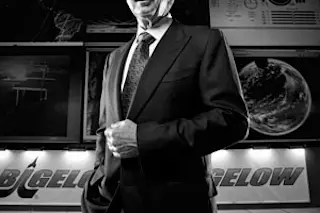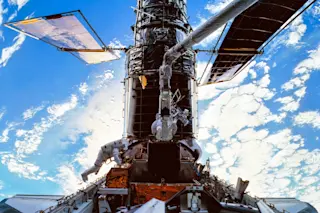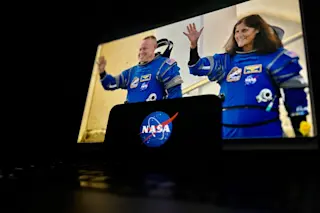In the brave new world of private spaceflight, Robert Bigelow may be the brashest player of all. Having built his fortune on the Budget Suites of America hotel chain, the Las Vegas entrepreneur is shooting for the stars, betting an estimated $500 million on his company, Bigelow Aerospace. He launched the Genesis space modules in 2006 and 2007 and now plans a fleet of space taxis, space hotels—even a private moon base. In July he and executives from Boeing’s Space Exploration division announced plans for a low-cost manned spacecraft called
, capable of carrying cargo and up to seven passengers into orbit by 2015. As NASA winds down its space shuttle program, the outspoken space cowboy has a lot to say about our missions of the future—and the past.
How does someone go from hotel magnate to space entrepreneur? I decided when I was very young ...















